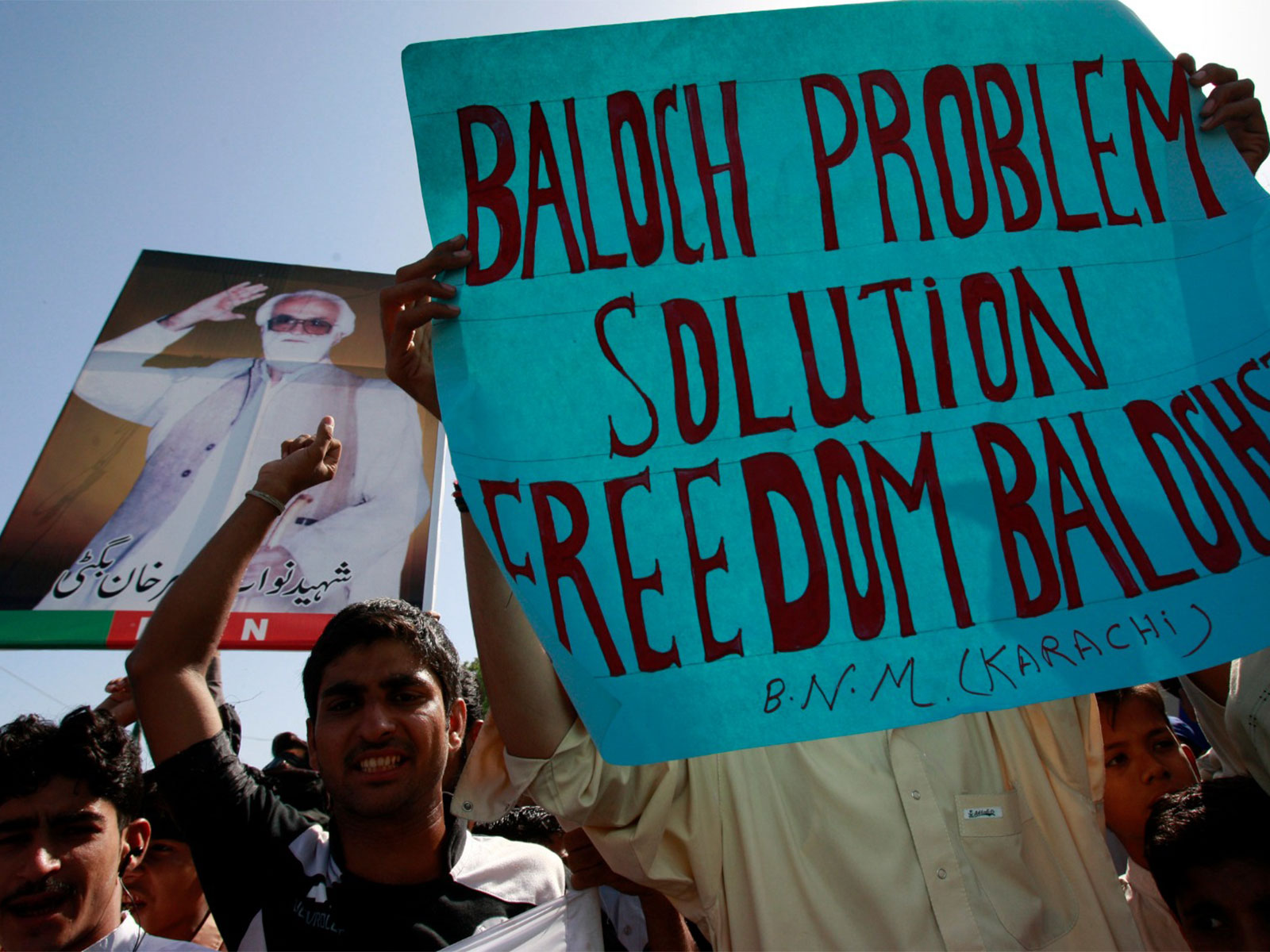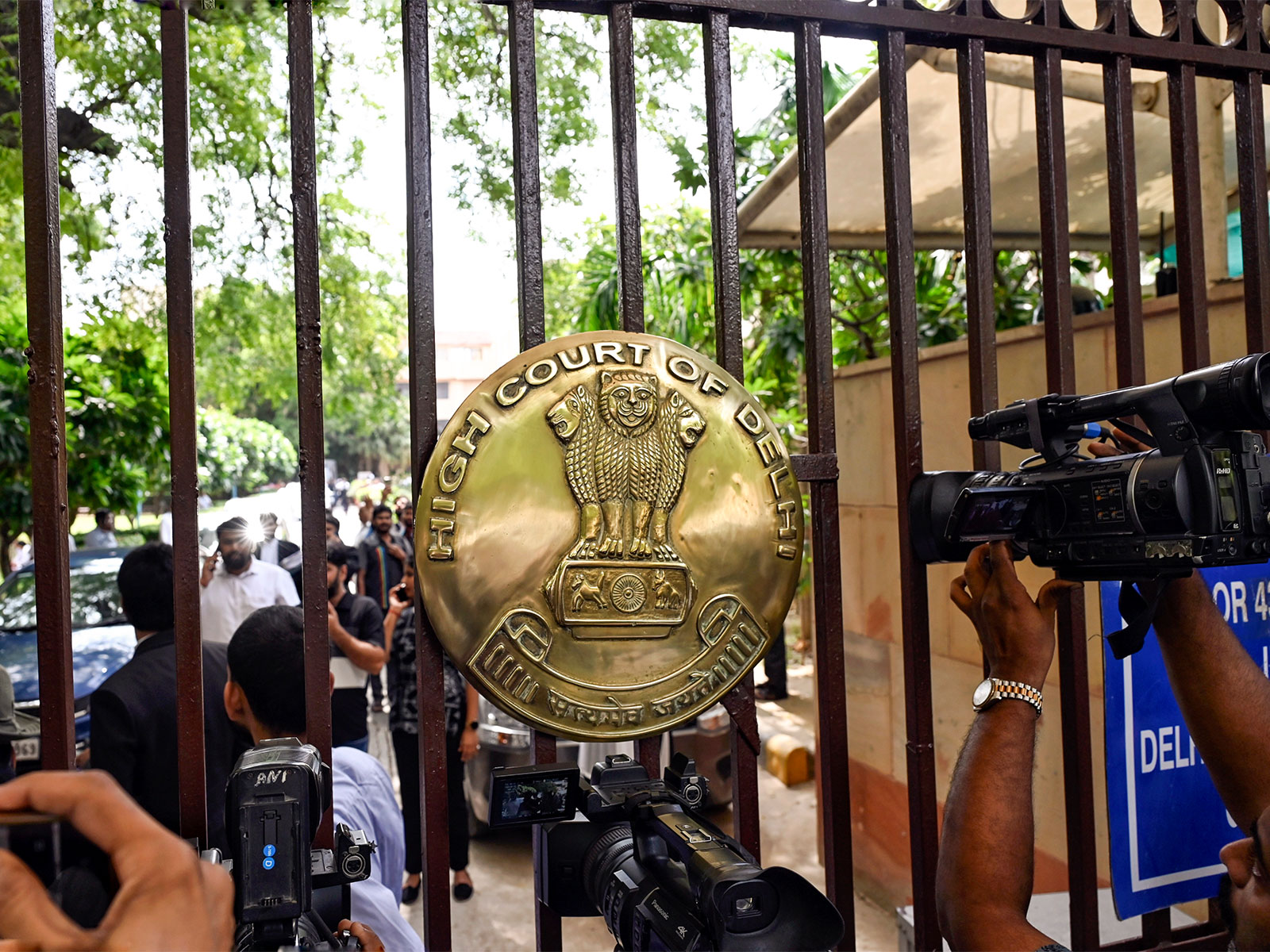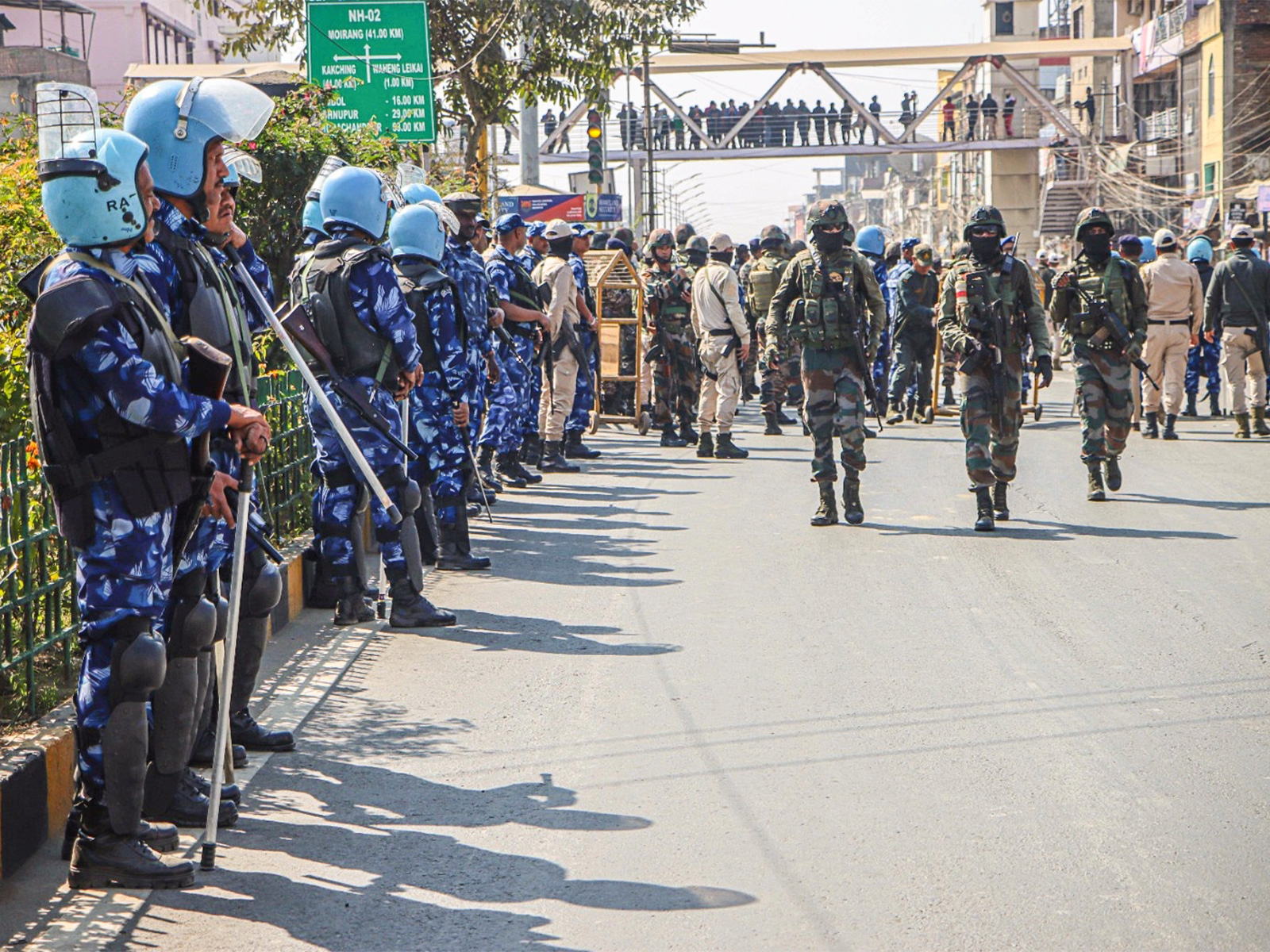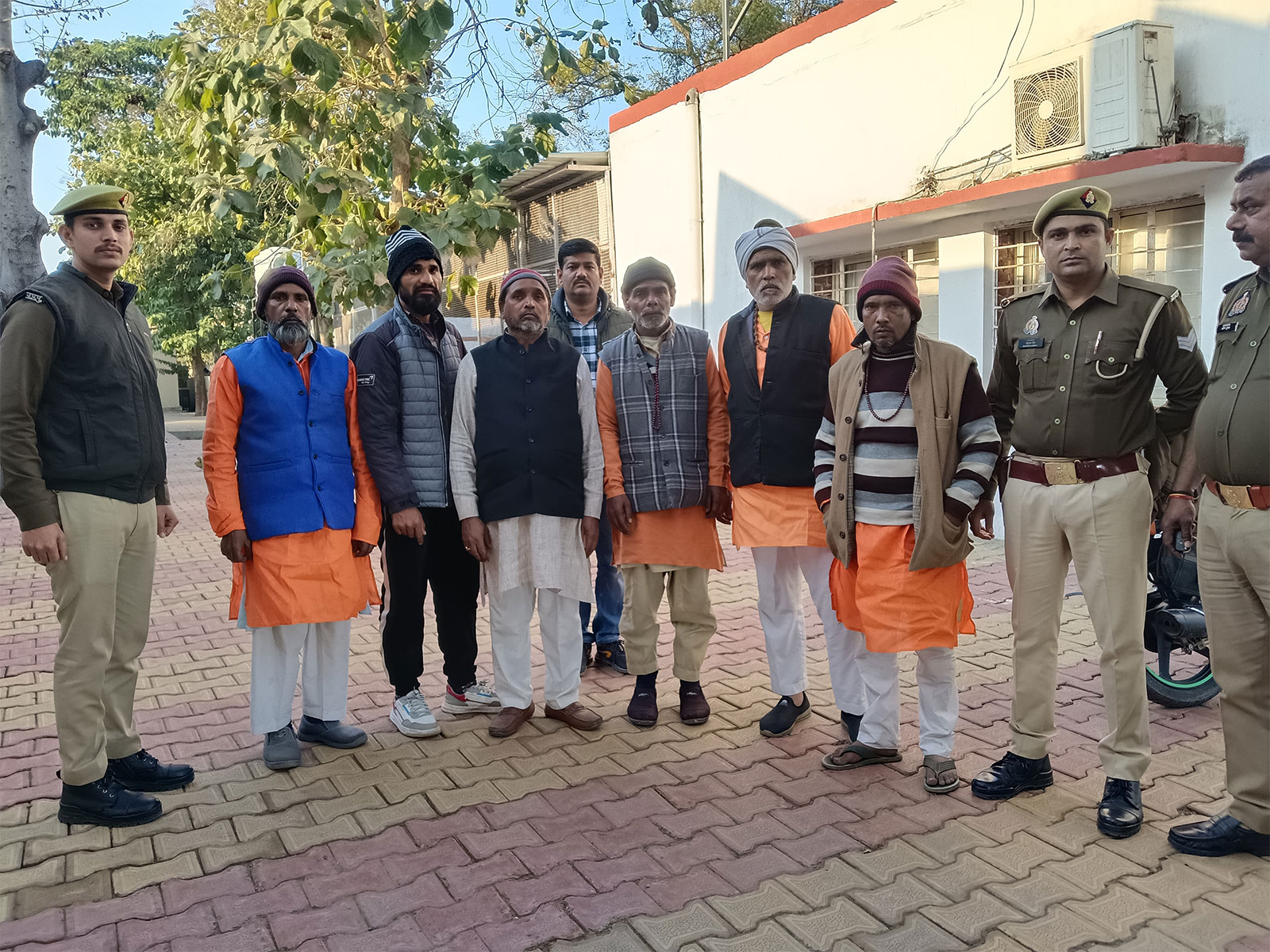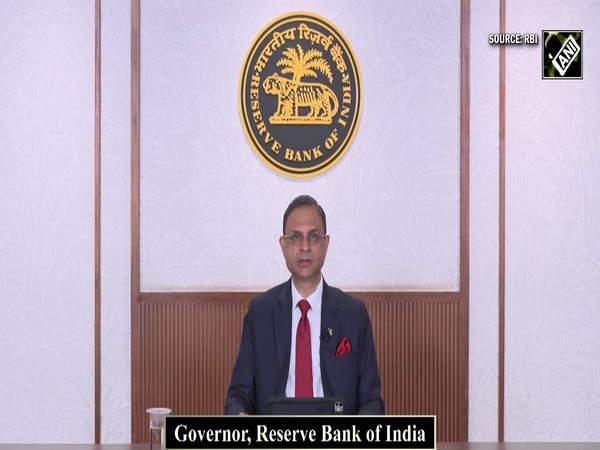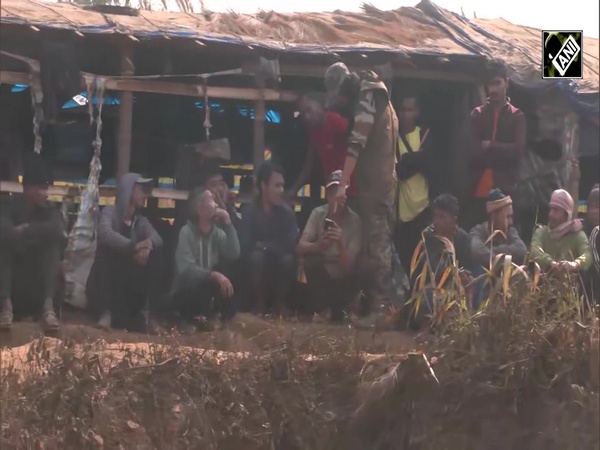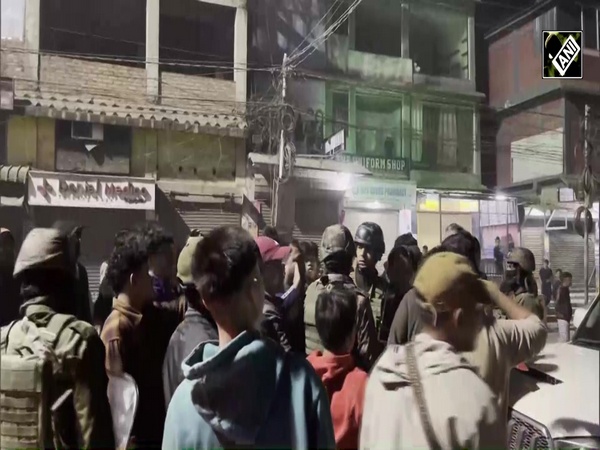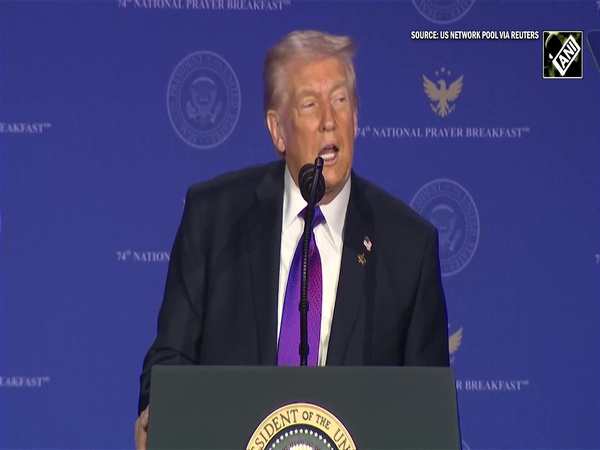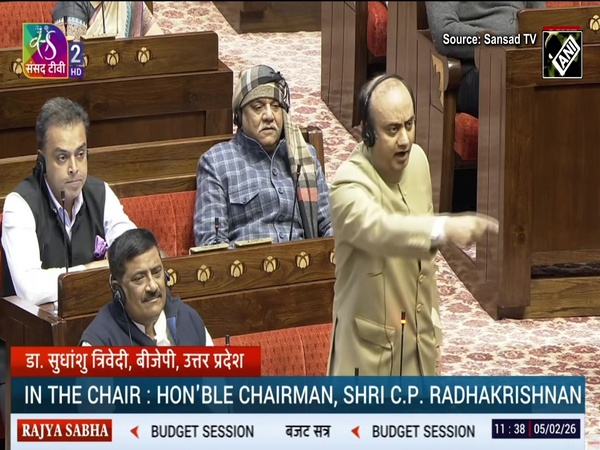How atheist China is trying to take control of Tibetan reincarnation, writes Tenzing Yangzom Bhutia
Dec 24, 2020

Taipei [Taiwan], December 25 : The Chinese Communist Party is an atheist organisation, barred from practising religion, as they have for years tried to regulate the affairs of Tibetan Buddhist figures, determining who can and cannot be reincarnated, Tenzing Yangzom Bhutia wrote in an opinion piece for The Taiwan Times published on Thursday.
According to Bhutia, Tibet, since time immemorial has been a country where the socio-political and cultural structure has been based on religion and Buddhist Philosophy. "Religion has played a very important role in the life of the Tibetans since the time of the introduction of Buddhism from neighbouring country-India by Tibetan King Trisong Deutsen in the 8th century."
Bhutia wrote, "The development of the spiritual technology that could bring about controlled rebirth could be achieved only when Buddhism flowed into Tibet and fused with the great Himalayan mystics of Central Asia giving rise to the institution of the tulku (reincarnate Lama), which Tibetian cherished as one of their greatest achievements."
"Since the time of the Buddha, countless bodhisattvas have perfected their training in compassion and skillful means and cared for their disciples wholeheartedly, yet at the moment of passing away have had to leave the ongoing care of those disciples to others. However, once such great beings have reached a certain level of spiritual attainment, they have the ability to remain aware through the death process and consciously choose their next place of birth," Bhutia added.
This makes them indicate the place of their next rebirth before they pass away so that they can be clearly identified and thus resume the guidance of their students and their broader work in the world, known as "reincarnate Lama".
Bhutia reminded the People's Republic of China, an atheist Communist regime under the leadership of Mao Zedong invaded Tibet in the year 1950. During a meeting, Mao Zedong had told the 14th Dalai Lama, that "Religion is poison."
"Such a Communist-minded regime, which considers religion as a poison, has the audacity to declare the reincarnation of the 11th Panchen Lama and denounce the one recognised by the Dalai Lama."
Bhutia added that it is surprising that on August 3, 2007, China's State Administration for Religious Affairs issued a decree that all the reincarnations of tulkus of Tibetan Buddhism must get government approval; otherwise they are "illegal or invalid".
The Dalai Lama, in a 2011 statement, said that reincarnation laws are "outrageous" and "disgraceful", he said.
According to Bhutia, "After taking control over the genuine Panchen Lama reincarnate, the PRC has now set its mind on controlling and being the sole decider of the reincarnation of the 14th Dalai Lama. Meanwhile, Tibetans in Tibet are not allowed to carry or display the portrait of the 14th Dalai Lama and the punishment for doing so is severe."
He went on to write: "This PRC's attempt of devising ways and methods in order to gain complete control over the future Dalai Lama's lineage reflects the insecurity of the Chinese Communist party and the threat that the popularity of the 14th Dalai Lama as a world leader and a global citizen."
He then quotes Robbie Barnett, director of the modern Tibet studies program at Columbia University, "They want to make sure they control the next Dalai Lama, as they've tried to control the current Panchen Lama... Communist policy on religion is: You run Tibet by... having a lama who is credible enough to be influential when he says you should follow the Communist Party. They don't have enough power to control Tibet without a lama to handle it." "The enforcement of various inappropriate methods for recognizing reincarnations to eradicate unique Tibetan cultural traditions is doing damage that will be difficult to repair."
He then went on to quote the Dalai Lama when asked about what he had to say over the Chinese government's claim of authority in deciding the next reincarnation of the Dalai Lama, "If the Chinese leadership believes in religion and rebirth so much, then instead of worrying about the reincarnation of a "devil" they should start by finding the reincarnation of revolutionary leaders such as Chairman Mao and Deng Xiaoping." Chinese have often called the Dalai Lama "devil".
He wrote the Fourteenth Dalai lama has made it very clear over the years that the responsibility of the selection or the recognition of his reincarnation will be vested only with the Dalai Lama's Ganden Phodrang Trust and any other means and methods utilized by the PRC or any other institution other than the Ganden Phodrang Trust should be considered invalid.
Recently, China was elected to the UNHR Council with the lowest support ever, thus revealing its shaky global status and the fact that it is rapidly losing support within the UN. China, being a part of the UNHR Council, raises one question, the future of the global human rights issue.
"Having very actively pursued and still continuing with their policy to eradicate Tibetan culture, religion, tradition and language, throwing millions of innocent Tibetans and Uighur Muslims in concentration camps and executing genocide of these minorities whilst still being a part of the UN Human rights Council could not be any more ironical," he wrote.
The UN efforts over the years highlighting China's violation of human rights in Tibet, despite the lack of political will among the member states, led to the Tibet issue attaining international attention, including the attention of several UN bodies and officials, Bhutia said.
This was the fruit of the effort of the people of Tibet complemented by the works of international NGOs and other international civil society groups that helped in keeping alive the Tibetan issue and to bring global sensitivity and support for it.
Bhutia then wrote about a recent 2019 Bill, introduced by the US lawmakers in the House, which looks forward to promoting further American support for the Tibetan people, especially on the crucial issue of the selection and recognition of the future Dalai Lama.
Bhutia further stated that the bipartisan Tibetan Policy and Support Act of 2019 introduced in the House on September 13, by Rep. James McGovern, chair of the Congressional-Executive Commission on China, which was passed by the House and is currently led in the Senate by the Commission's Co-chair Senator Marco Rubio and others builds on the Tibetan Policy and Support Act, 2002, a landmark that enshrined support for Tibet in the US law.
The Bill makes it official US policy that the succession and reincarnation of the Dalai Lama and other Tibetan Buddhist leaders are exclusively religious issues that the Tibetan Buddhist Community should decide on, Bhutia noted.
Under the Bill, any Chinese official who attempts to interfere in this process will be subjected to sanctions that could include having their assets frozen and their entry to the US denied.
"The Bill would also allow for the allocation of development assistance funds for the skilled, entrepreneurship, and cultural preservation of Tibetans in exile in South Asia and requires the Secretary of State to urge the Government of Nepal to provide legal documentation to the long-term Tibetan residents who fled persecution in their homeland," Bhutia wrote.
"The bill further says that no new Chinese consulate will be allowed in the US until a US consulate is established in Lhasa, Tibet's historical capital."
Thus, Bhutia said, looking at the policies and the actions that the majority of the world's countries have undertaken in order to address these important issues and the various efforts of people around the world irrespective of their race, nationality, religion in bringing about general awareness and bringing important issues and questions to the forefront, "makes us have faith in the religion that is humanity and to look to the future with the courage to strive for the attainment of world peace."
